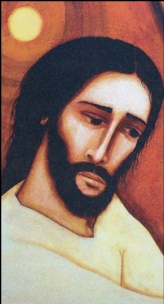From Bishop Richard - 2nd June
Webmaster • June 1, 2024
We gather for our celebration of Corpus Christi at a significant time in the life of our Diocese when the Pastoral Plan – The Word Who is Life – is being implemented. While this is a time of change, all we do grows from our encounter with the True Vine - the person of Jesus Christ – who gives Himself to us in the Eucharist. Our continuing conformity to Him, our remaining part of the Vine, is the only way for us to ensure that we are faithful to the Mission to which He has called us. Our celebration today, elevated by the wonderful carpet of flowers, celebrates the gift of the Eucharist, and impresses upon us all the centrality of the Lord’s
Eucharistic presence in our lives.
The wonder of the Eucharist calls for our utmost thanksgiving - it is the greatest gift for our journey. We speak of Viaticum - food for the journey - as the last Communion before death, but the Eucharist is the food for our journey of life. The Lord gives us His very self as the supreme sustenance for our lives. The
Lord’s Passover - His life death and resurrection - is made present by none other than the Lord himself, acting through his Priest. Just as Jesus gave Himself to the Apostles in the Upper Room, under the appearance of bread and wine, so He gives Himself to us. He is the Bread of Life. Like the disciples at
Emmaus, we recognise Him in the breaking of bread and our hearts burn within us as He speaks to us on the road of our own pilgrimage and feeds us with his very self.
Every aspect of our life as His people should flow from the Eucharist and we bring ourselves and all our life's
experience to the foot of the cross and to the empty tomb as we gather to listen to Him, welcome Him, praise Him and receive Him. As the writer of the letter to the Hebrews explains: through His death on the cross, Jesus, Who is the new covenant, makes it possible for us to render service to the Living God.
The Eucharist is beyond our understanding. We see and receive Jesus, Who humbled Himself to share in our humanity and Who, in this action of the Mass, calls us to share in His life, in His divinity. This wonderful mystery, through which we become conformed to Christ, demands our lifelong reflection, prayer, participation and thanksgiving.
Our Eucharistic procession is a significant and powerful extension of this celebration. Pope St. Paul VI, whose feast we celebrated only yesterday, wrote of prayer before the Blessed Sacrament as “a proof of gratitude, an expression of love and a duty of adoration towards Christ our Lord”. Expressing our gratitude, love and adoration in a public way is a witness to our faith in Jesus’ Real Presence. The procession is an act of witness and, together with the celebration of the Eucharist itself, is a moment of evangelization. This public
witness to the Eucharistic Presence of the Lord proclaims Him to the world. The Eucharist is at the heart of our mission as the Church, for it is here that we encounter Christ, deepen our unity with Him and with one another. It is this encounter, this closeness to the Lord, which we proclaim.
Across the Diocese, Eucharistic Adoration provides opportunities for prayer to underpin the work of the Pastoral Plan. These times are a vital element in the life of the Diocese as we look to the future and the continuing renewal of our mission.
Many will remember the Adoremus gathering in Liverpool a few years ago, part of the celebration of Eucharistic Congresses across the whole world. Indeed, our flower carpet team laid a carpet in Liverpool’s Metropolitan Cathedral for that celebration. This year, Adoremus continues, as it were, with a gathering at
Oscott College in Birmingham on the 14th of September. Each Diocese has been offered 44 places for this event and you can book a place and find out more details on our diocesan website.
Spend time with the Lord in the Blessed Sacrament, speak to others of his Real Presence, share frequently in the celebration of the Eucharist for it is participation in Him that brings about, in a way not possible in any other context, our conformity to Him, and the growth in holiness that will enable us to proclaim Him to the world.
With every blessing,
+ Richard
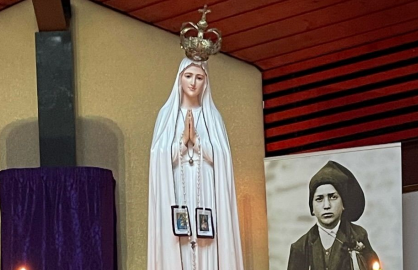
We are honoured to be the first parish in 2026 to host a visit of the National Pilgrim Virgin Statue of Our Lady of Fatima, along with the Relics of Saints Jacinta and Francisco. This is a wonderful opportunity to have an insight into Fatima. There will be mass, rosary, meditation, confessions, divine mercy, films and items to buy. 9.45am until 4.45pm (please bring a packed lunch; tea & coffee will be available). To learn more, email: patsydaniels@gmail.com , or see poster/flyers in the porch. If you are able to help on the day please speak to Fr Graham or email the office.
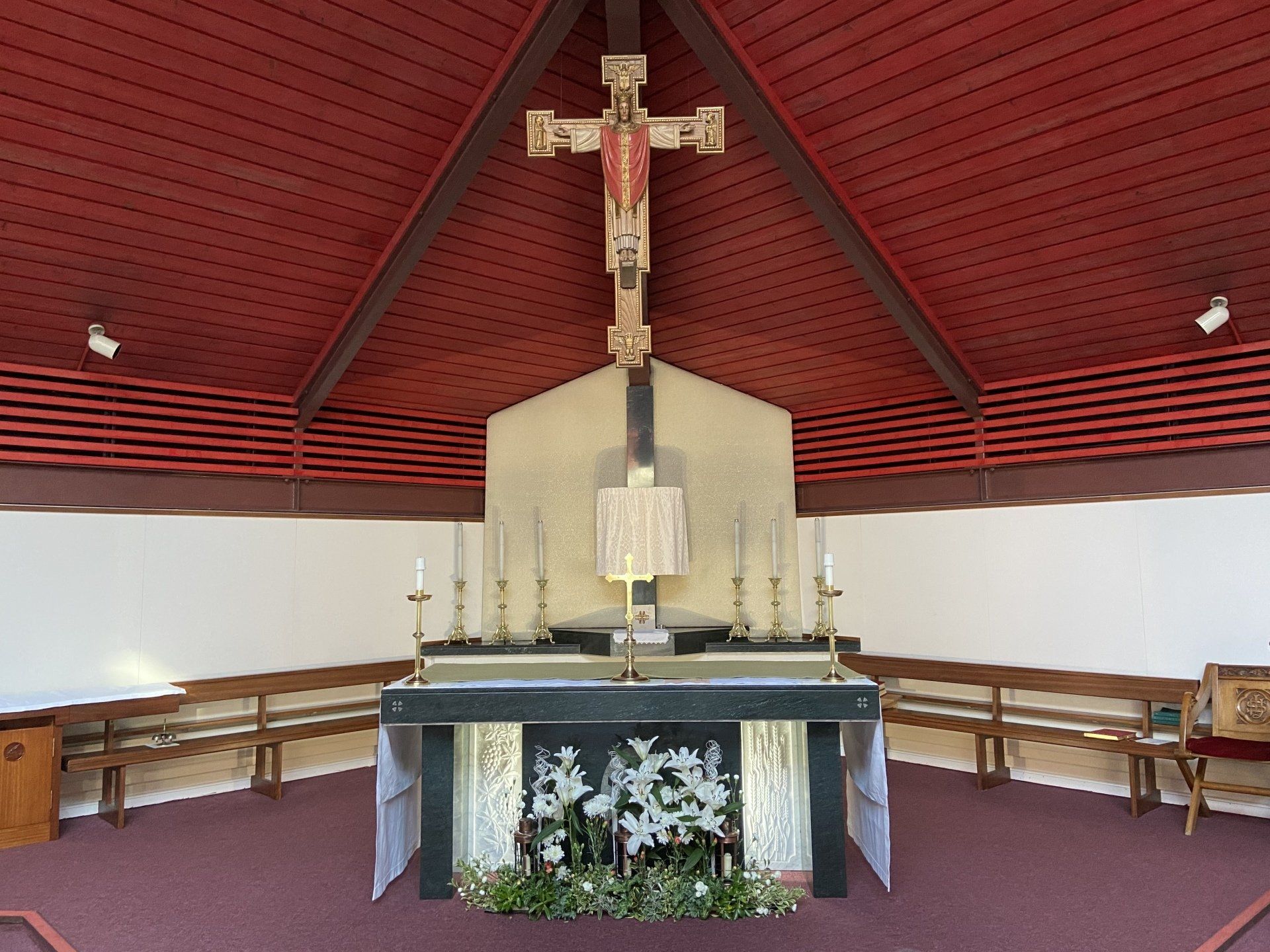
Throughout Lent, please bring your personal prayer intentions to our Prayer Boxes (both at St Peter’s and CTK). At St Peter’s, we already have the Prayer Tree, located in the Divine Mercy Chapel, which is regularly used by parishioners and visitors throughout the day. We have added a Prayer Box here, and one at CTK (next to the votive candles). You are warmly invited to write your personal prayer intentions on a small card and place them in the Prayer Box. If you are unable to get to church, you can email them to the office for inclusion, or via the contact form on our website. The names and intentions placed in the Prayer Boxes and on the Prayer Tree will be offered at the First Friday Mass, united to the Sacred Heart of Jesus. After this Mass, the Prayer Box will be refreshed for the following month. Please note that these prayer intentions will remain private. They will not be read aloud. The aim is to ensure that our intentions remain current and meaningful
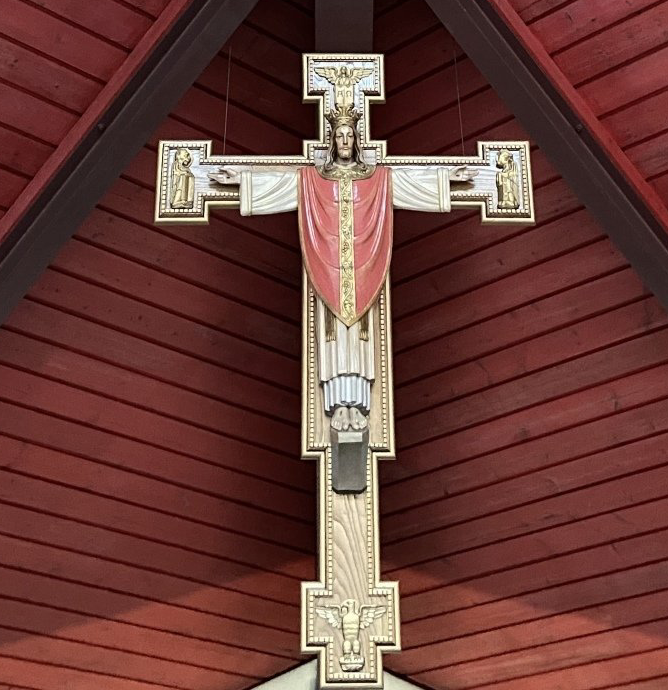
"Lent is the perfect time to work on our prayer lives!" Not my words but an invitation from another. Perfectly true though. The words are echoed by Pope Leo XIV in his Lenten Message for this year. Pope Leo goes on to reflect on the power of the words we speak, that can bring peace or harm: “I would like to invite you to a very practical and frequently unappreciated form of abstinence: that of refraining from words that offend and hurt our neighbour.” It is always tempting to retaliate when someone hurts us or provokes us. We know where the temptations come from! Jesus shows us how to respond. Not only by His answers to the devil in the wilderness but also by the way He accepts His passion and cross. Sometimes words, sometimes silence, never harmful. Jesus trusts in His Heavenly Father, the authority of the Word of God and primacy of the worship of God. Jesus knows that everything has been put into His hands. That He will undo the disobedience of Adam by His obedience to God's will. He knows that through His death and resurrection grace will always outdo sin and death. When we are tempted to say a word that might harm or hurt, remember the words that were thrown at Jesus as He carried His cross and the silence that absorbed them. Abstinence is about the love of God and His authority over our bodies and souls. It draws our attention away from self and to a deeper and real relationship with God and our neighbour - be them friend or stranger. With my daily prayer for you this Lent. May God bless you. Fr Graham
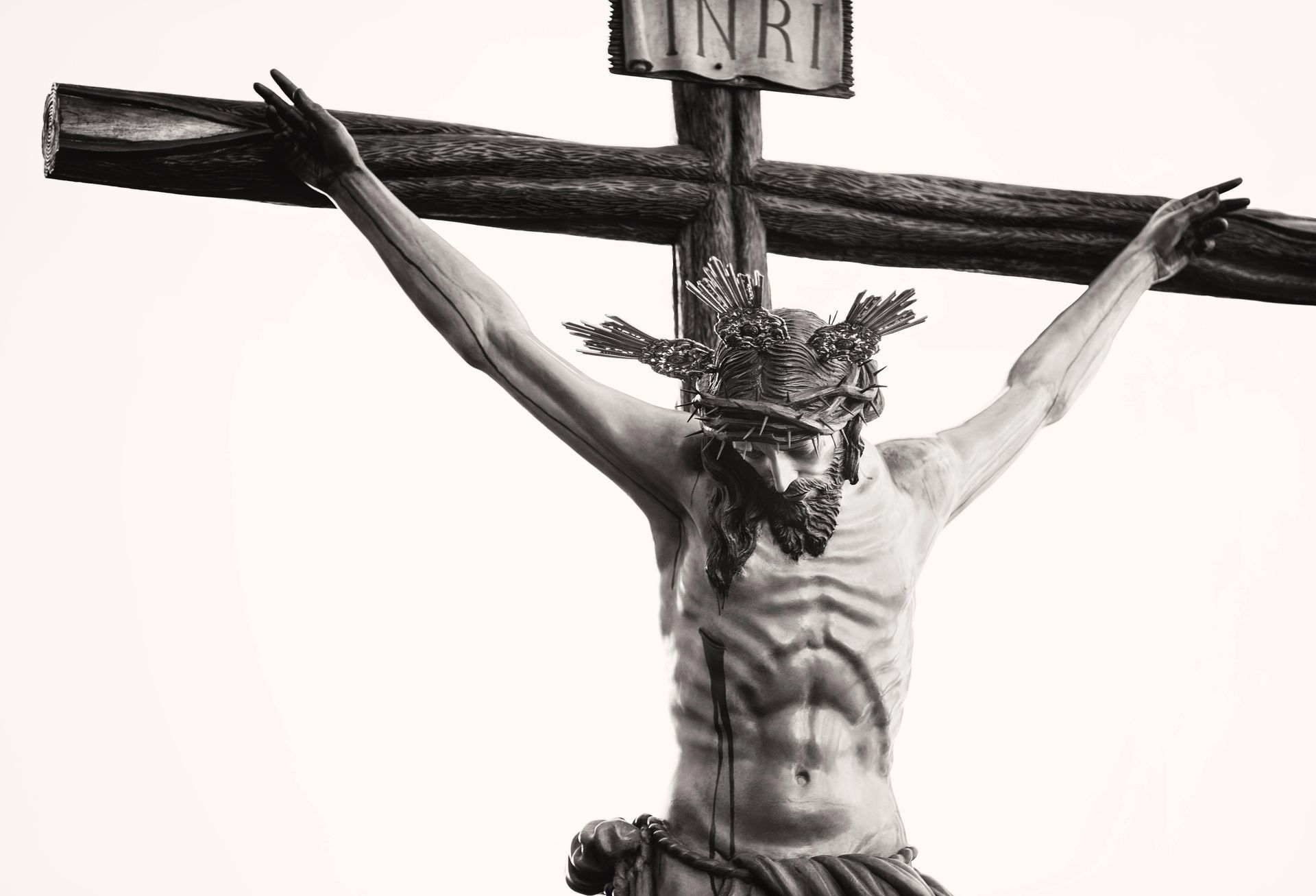
We have spoken about preparing for Lent. We will be reminded about prayer, fasting and alms giving on Ash Wednesday by Jesus in the Gospel for the day. Alms giving is often misunderstood. It is not just about giving to charity but about justice. To give to those in need is to give them their right to live, to eat, to drink, to have somewhere to sleep, to be without fear. It is also for ourselves. As we grow in spiritual discipline we know we need forgiveness from God and others. The practise of alms giving is an act of love and love cancels many a sin. Our Lenten Alms collections and donations will be distributed equally between our local SVP project at St Charles Borromeo and also Let the Children Live, a priest helping Columbian street children, see here . Collections throughout Lent.

The singer is a local man who has visited St Peter’s before as Elvis. He is exceptional and we can promise you a great evening. Refreshments will be available to purchase at the event. It will be a great night and if you like Elvis’ music you really will not be disappointed. Tickets are £12.00 each. If you are interested, please email Liz Matthews at the school – office@stpetersshoreham.co.uk and advise how many tickets you would like.
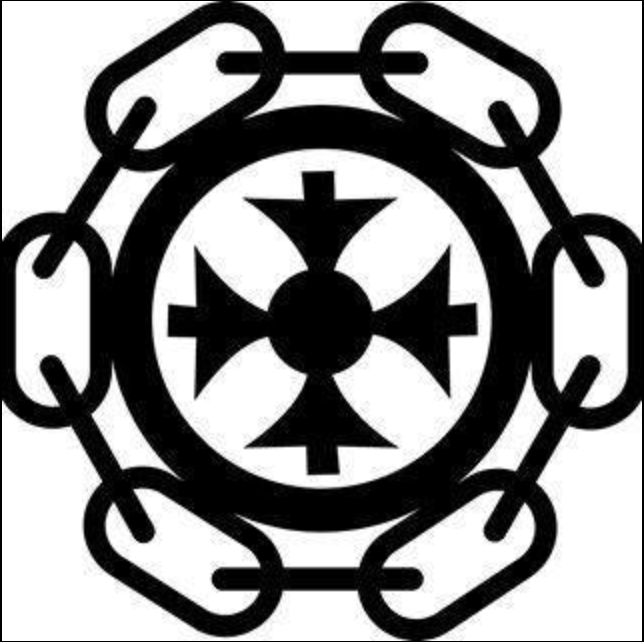
Adur Valley Catenians Quiz Night in aid of 'Safe in Sussex', a women's refuge from domestic abuse Saturday 28th February, 6.30 for 7.00pm , at The Towers Buffet Supper / Licenced Bar / Raffle / Prizes for the winners / Teams of 4-6 people / £12.50 per person / £8.50 under 18s. Tickets from: info@adurvalleycatenians.co.uk . Or call Adrian on 07976-913774.
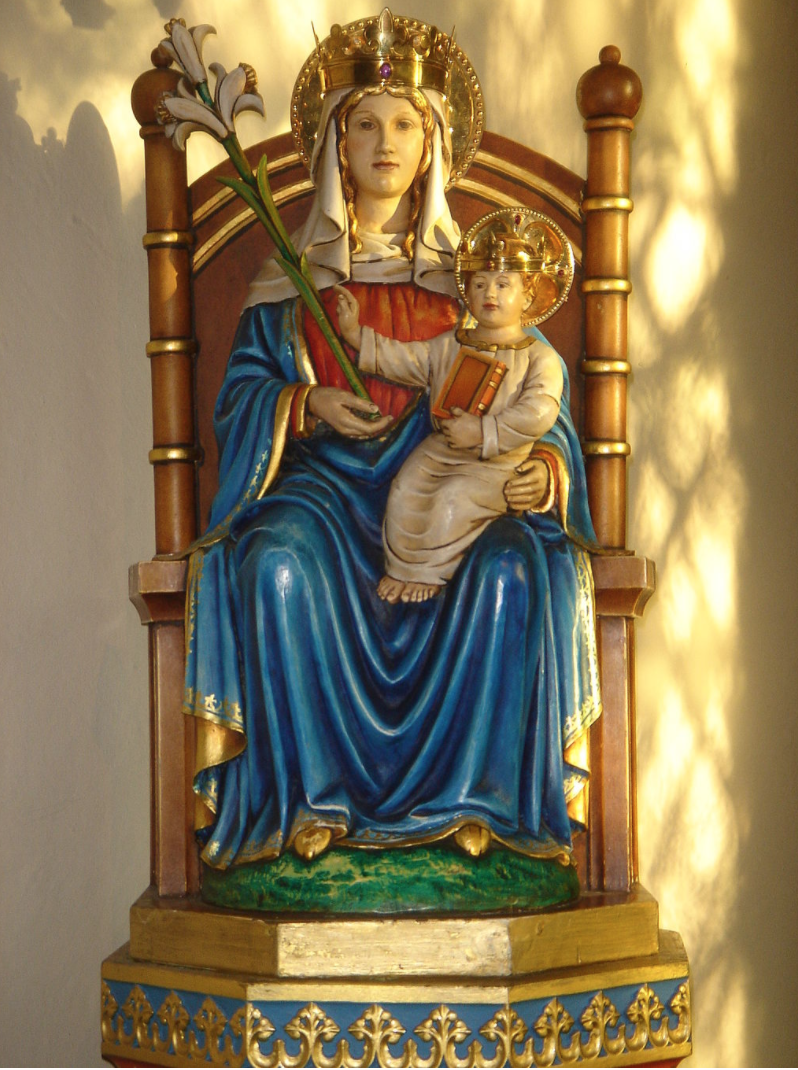
Tuesday 19th to Thursday 21st May 2026 . Full cost including meals and transport by coach will be £300. 25 rooms have been booked with a few spare ones to go. Friends from local parishes will be most welcome to join us. However, we must have definite names by Thursday 19th February at the latest. Please contact parish office for more information. 01903 785901.


